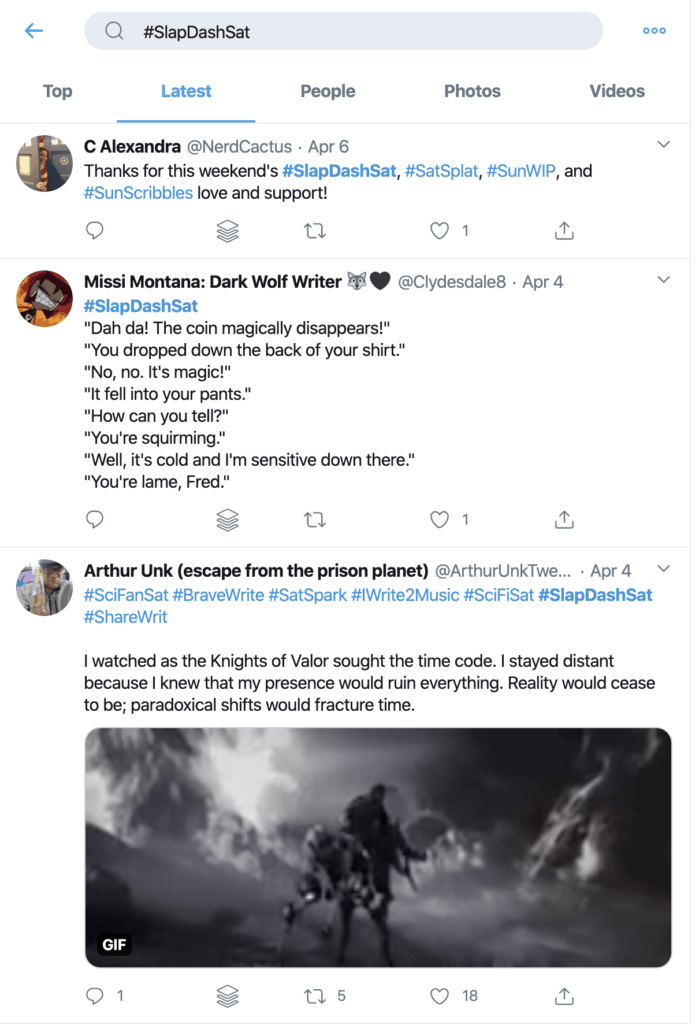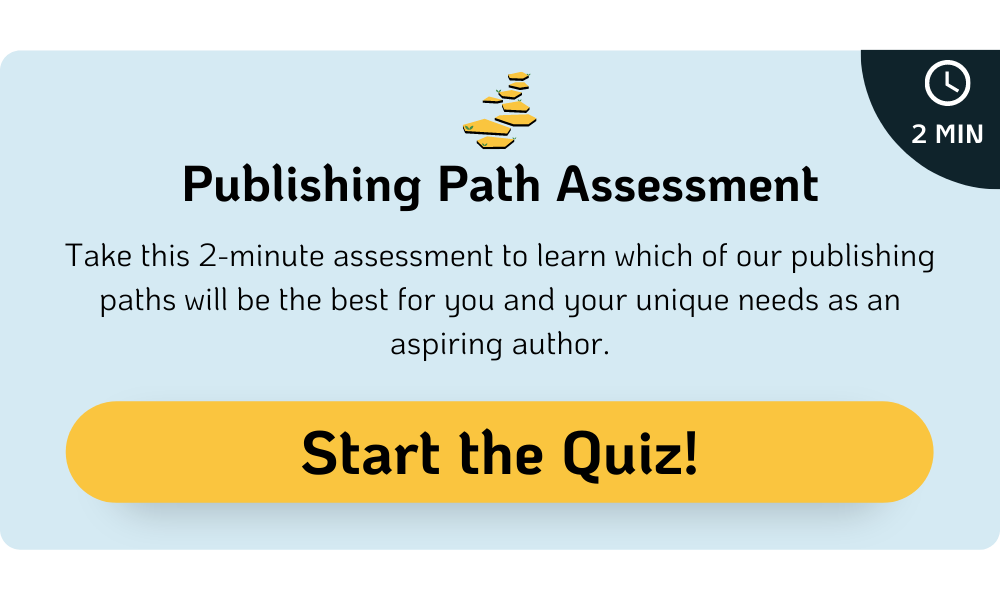The only reason you’d need to learn how to get a book deal is if you’re pursuing traditional publishing, which means not self-publishing.
Book deals are when a traditional publishing company offers you a contract selling your book to them under certain conditions, like an advance, a specific royalty rate, and other requirements and specifications.
Ultimately, it means you’re going to be a traditionally published author!
But it typically takes a long time to land a book deal and if you’re writing a nonfiction book, it’s even longer with fewer chances you’ll be able to publish. Either way, our hopes are to detail the process for you so you really understand everything that goes into traditional publishing…
Everything that you could avoid if you were to self-publish a book (but that’s a topic for this blog post).
Here’s how to get a book deal:
- Be sure you want a traditional book deal
- Write a book proposal
- Find an agent / query an agent
- Wait
- Get your agent!
- Get your proposal to publishing companies
- Wait
- Book deal offered
- Book deal acquired
Self-Publishing VS Traditional When it Comes to Book Deals
You only need a book deal if you’re traditionally publishing, so that’s what this blog post will follow. And while we self-publish books here at Self-Publishing School, we ensure to know and understand traditional publishing in order to better help our students (many of whom come to us after waiting years with no word on a book deal).
Here are the main differences between traditional and self-publishing:
| What You Get | Self-Publishing | Traditional Publishing |
|---|---|---|
| Sole control of your book's outcome | ✓ | X |
| Sole control of your book's rights | ✓ | X |
| Control over the story | ✓ | X |
| Control over the cover | ✓ | X |
| 100% of royalties | ✓ | X |
| Editing included | X | ✓ |
| Cover design | X | ✓ |
| Marketing | X | X |
| Deadlines | X | ✓ |
How do book deals work?
A book deal works by a writer querying an agent for representation, that agent pitching the project to traditional publishers, and publishers buying the rights to that book from the author.
There are a few main components of getting a book deal we’ll go over in this post:
- Creating a book worth buying
- Querying an agent for representation
- Your agent pitching your book to publishing companies
- The publishers either accepting or denying the proposal
This is a very simplified explanation, which we’ll explain in much further detail below.
How long does it take to get a book deal?
It can take anywhere from a few months to a few years to get a book deal, so it varies greatly. Because of the long process and subjectivity within the traditional publishing industry, there are many hands your proposal must “pass through” before you can get a book deal.
We actually recommend that if traditionally publishing is your end-goal, your dream, that you self-publish in order to build social proof that your books sell and in order to build an audience.
While you should not query a book that’s self-published, you can pitch a brand new book to an agent and provide details about your book sales, email list, and overall platform size, which can increase your chances of an agent taking interest in you.
This happened to an SPS friend, Hal Elrod. You can hear all about how he got foreign book deals from the success of his self-published book, The Miracle Morning, here.
More than ever, both agents and publishing companies are looking to your online platform/presence in order to determine if you’ll be a good “bet” to publish.
How much do you get for a book deal?
Most first-time authors with a traditional publishing company will get between $5,000 to $10,000 as an advance. While outliers do make much more, those cases are very far and very few between and their advance is often the result of a “bidding war” between publishers.
The more offers you get for your book, the bigger your advance. This only really happens if you have the next big book idea or series and your agent is very well connected.
But ultimately, your first advance likely won’t be enough to quit your job. You’ll usually have to keep a full-time job while finishing your book and waiting for publication.
How to Get a Book Deal: Step by Step
The time has come! Let’s get into the details about how to get a book deal, broken down step by step so you can ensure the best chance of getting published.
Remember, some of these steps may vary per agent, but the overall structure of the process is the same.
#1 – Be 100% sure of your publishing decision
Nowadays, the biggest publishing decision you’ll make is choosing self-publishing or traditional publishing.
The self-publishing industry is soaring, it’s growing, and it’s very lucrative for people now. It’s nothing like it was when it first started, where books were of poor quality and anyone with Microsoft Word uploaded ramblings they called a book.
Now, there are more great books than ever (especially by people who have the right process to follow to self-publish), and they’re rivaling traditional publishing.
So why would anyone want to traditionally publish then?
Well, there’s the lure of the NYT Bestsellers list, for one. As well as the “prestige” still connected to traditional publishing because of the fact that your book has to pass through several hands, making people think your book is “better” than others.
The above is the main reason people still want to traditionally publish.
But if you’re a business owner looking to grow your business with a book or a nonfiction writer in general, self-publishing is almost always the better route unless you’re famous, very highly known, or have a massive platform.
So before going through the work and time to traditionally publish, make sure it will really work for you.
#2 – Write a killer book proposal
You want your book to sell, right?
Then you need to have something that will sell it. In this case, it’s a book proposal. This is what will convince the people with decision-making power to give your book a chance, to prove that it will sell.
You want a combination of your personality, writing skill, and a strong book description in this letter.
#3 – Find a book agent / Query and agent
This is a really long, arduous path to traditional publishing that does take some luck and situational advantages into account.
The truth is that a lot of the time, knowing someone who knows someone who can get you in touch with an agent is the quickest way to find out. Otherwise, you’ll be left with the old fashioned method, which is somehow finding agents online, getting their contact info, and sending a query letter.
What’s a query letter?
A query letter is something a writer sends to literary magazines, literary agents, or other publications in order for them to request their full work. This query letter is essentially “selling” both you and your work so they’ll want to know more.
There’s a specific structure that works best for query letters in order to better sell your idea.
Here’s a basic structure of a query letter:
- Opening: Start with any credentials, awards, and more that would basically “qualify” you as someone worth taking a chance on.
- Tell then what you want them to take on. List the title, word count length, and book genre.
- Describe your book, but the main hook! What will set your book apart from something else? Make this concise and yes, you can include some spoilers here. Overall, you should communicate who the main character is, why we care about them, and what the overall plot is.
- Write a short bio with details like other published works, self-published books, what you do, maybe even a fun fact about you.
- Conclude the letter with some more details about if you have a series in mind, and any other requirements listed if there are guidelines for that specific agent available.
- Follow. The. Guidelines. You should do enough research about the agent to know if they have certain guidelines. Follow these. It only increases your chances.
If you want to increase your “luck” in terms of landing an agent, network. Figure out where these agents and editors are hanging out and make yourself available to connect with them.
Tips for networking to find an agent:
- Go to writing conferences where editors frequent
- Ask great questions at panels
- Get on Twitter! So. Many. Agents.
- Participate in writing-related hashtag games on Twitter
- Embed yourself in the publishing world
- Guest post on authority websites around writing and publishing (to increase credentials)
Ultimately, querying can be difficult and it’s all up to whether or not the agent is interested in your idea…or how well connected you are to people in the publishing world.

#4 – Wait…and wait…and wait some more
It’s a torturous part of the book deal process, but you do have to wait a while.
For the agent to check their email and get back to you.
For any agent to show interest.
And even for the agent to read your full manuscript if they requested it, which is something that may happen and is a great sign! It means they liked your query and book idea and want to see your overall writing abilities and how the story you told them about plays out.
While you’re waiting, work on your manuscript or start writing a new book!
#5 – An agent loved you, yay!
If you get an agent, congratulations!!! That is a very difficult step some writers never, ever get to. Many give up before this happens.

Having an agent means that you will most likely sell a book, but not necessarily the one you pitched to them. After you land the agent, the ball is in their court and now they get to do what they do best: their job, selling your book.
#6 – Push your proposal out via your agent
You do nothing right now, except maybe work on the second book (if this is a series) or move on to your next project.
Let your agent do their job, check in with them to see if they need anything, and keep doing what you have been and keep writing!
#7 – Wait and wait for a publisher to pick up your book
It’s a waiting game, like I said earlier. I’m not an agent and have not worked with an agent, so I don’t have all the details about how they go about selling your book, how long this takes, and what that process looks like.
But this is a great post all about what a literary agent does to actually sell your book.
The overall process is this: the book agent typically knows editors at publishing houses that specialize in the books they usually represent (which is also your book). They send these manuscripts off to them in order to gauge interest in the project based on market trends, current events, and what’s simply “hot” right now.
#8 – A deal has been offered!
If your book has interest from a publishing company, your literary agent will do the negotiating. This is another thing that comes in handy with an agent: they have the sales skills to get you the best deal.
And they will, because their pay comes as a result of your overall deal. The more you get, the more they get.
If your book has interest from more than one publishing house, a bidding war could commence! And this is great, because that’s how you get those massive, 7-figure advances.
#9 – Book deal acquired
Once you and your agent are good with the contract, you sign and BOOM, you now have a book deal!
After this, you’ll likely work with an editor, meet deadlines, and then wait until your book is up next in the publishing queue. This can take up to two or three years at times, depending on how much work the book will take to get publish-ready.
Usually, you’ll have to wait over one year minimum after you have a book deal in order for it to launch.
That’s how you get a book deal. Remember, it can take years to get a book deal for a single piece of work. Oftentimes, writers query a project while working on another project so if they don’t hear back, they can query another project.
This is one the longest processes for publishing a book and usually, publishers don’t take nonfiction books unless you have serious clout or backing.
So good luck, and let us know if you have any tips below in the comments!
